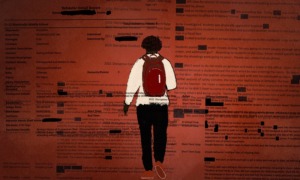
Late last week, the House of Representatives passed the Student Success Act (H.R. 5), a reauthorization of the Elementary and Secondary Education Act (ESEA), primarily along party lines, by a vote of 221 to 207 (with twelve Republicans voting against the bill). The bill would fundamentally change federal accountability requirements and funding for schools, and opponents argue it could lead to more than one million students losing access to after school, before school, and summer learning programs.
The Student Success Act fails to reauthorize the 21st Century Community Learning Centers, which provide academic and other enrichment programming during non-school hours. The centers particularly serve children and families from low-performing, high poverty schools. Instead, the Student Success Act channels funding into a new Local Competitive Block Grant program, which could be used to support before and after school programs – though block grant funds could also be used for teacher recruitment and pay, school leadership mentoring, and other programs. In tough economic times, after school advocates say block grant funding would most likely go towards school day activities.
 Rep. Dan Kildee, D-Mich., who highlighted the importance of after school programs during debate of the bill on the House floor, did so again in an e-mail to Youth Today, saying “before school, after school, and summer learning programs are successful activities that provide safe places for millions of children in Michigan and across the U.S…Countless studies have also shown that kids involved in after school and summer programs are less likely to be perpetrators or victims of crime, less likely to drink or use drugs, less likely to join
Rep. Dan Kildee, D-Mich., who highlighted the importance of after school programs during debate of the bill on the House floor, did so again in an e-mail to Youth Today, saying “before school, after school, and summer learning programs are successful activities that provide safe places for millions of children in Michigan and across the U.S…Countless studies have also shown that kids involved in after school and summer programs are less likely to be perpetrators or victims of crime, less likely to drink or use drugs, less likely to join
Commenting specifically on the bill, Rep. Kildee said “unfortunately, the Student Success Act all but eliminates the 21st Century Community Learning Centers (CCLC) initiative, which could lead to over a million students losing access to before school, after school and summer programs. Initiatives like the 21st CCLC are wise, proven investments that have had strong bipartisan support in the past. We should be expanding such successful and proven programs, not cutting them or turning them into a block grant.”
Supporters of the bill argue that cutting specific programs in favor of block grants allows states and local school districts to better channel federal money to meet their own needs and supports “a more appropriate federal role in education,” according to a fact sheet from the House Education and the Workforce Committee.

Zach Zagar, spokesman for Rep. Todd Rokita, R-Ind., told Youth Today, “Not every student, school, city, or state is the same. The Student Success Act lets schools and parents have the flexibility to run schools that fit the needs of their unique students. The Student Success Act was written with the belief that when given the choice, those that know students best – parents, teachers, and localities – are best suited to guide their education, not Washington bureaucrats.”
Other changes to the ESEA in the Student Success Act include elimination of over 70 elementary and secondary education programs and creation of a new Local Academic Flexible Grant, which can be spent on school activities authorized by state law. It also repeals the controversial Adequate Yearly Progress metric, which evaluates schools and school districts based on graduation rates, test scores, and other measures, and repeals the Highly Qualified Teacher standards that require states to work toward all teachers being deemed qualified to teach in their subject areas based on their degree, licensure, and knowledge. The Student Success Act also reauthorizes and modifies the McKinney-Vento Homeless Assistance Act.
David Goldberg, director of federal policy and national partnerships at the Center on Time & Learning, suggested that “the prospects for final passage of [a revision to] ESEA are very poor – the Student Success Act was passed with no bipartisan support, and the President made clear he would veto it if it came to him.” Goldberg said that there’s some hope that a more bipartisan ESEA revision could be passed in the Senate, but even if that happens, the prospects of bringing the Senate and House bills together are extremely slim given their fundamentally different structures and views of the appropriate federal role. Goldberg believes that a final reauthorization of the ESEA is unlikely until at least the next Congress. Until then, he said, 21st CCLC funding will continue, and more and more states will receive and use federal waivers of ESEA requirements.
Lisa Pilnik, JD, MS, is a freelance writer, consultant, and co-founder of Child & Family Policy Associates, a Maryland-based consulting firm.
Photo credits, from the top: Rep. Dan Kildee speaks on the floor of the House of Representatives about supporting funding for Michigan after school programs (via YouTube), Rep. Dan Kildee (courtesy US Congress), Rep. Todd Rokita (courtesy rokita.house.gov)
























